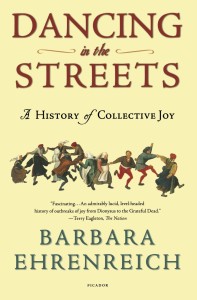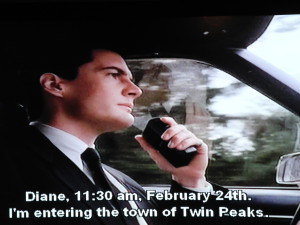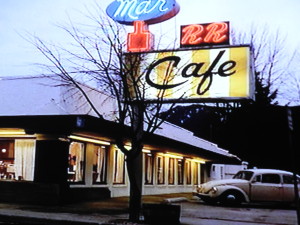—-
Barbara Ehrenreich is a writer and thinker involved in the exploration of social phenomenon. She is certainly a political thinker and definitely has a point of view about social phenomena as they impact modern life. She is not an historian or an anthropologist. I’m at a loss to understand the criticism of this book based on what it never pretends itself to be, a history of dance or an anthropological study of the ecstatic phenomenon.
Several people have found it necessary to point out that Barbara Ehrenreich is on the left politically and a product of the 1960s with an „ah hah“ mentality that seems to indicate she has has somehow tried to hide this, or that it inherently shameful. Social thinkers who propose changes in the way we currently conduct our lives or our society ALWAYS have ideas which they promote (pejoratively described as biases) because they actively advocate for change. It would be dishonest to attempt to hide them behind a false „objectivity.“
This kind of false „objectivity“ has sapped the life, not only from much that passes for social commentary, but also from investigative journalism, in which the collection of a quote or two from „authorities“ on each side of a conflict has replaced the search for the truth about a given situation. It has also lead to the false notion that the truth is always located in the middle of the road.
Bravo to Barbara Ehrenreich who never hides behind this sort of fakery in her search for the truth as she sees it. She invites readers to join the dance of two minds, the writer’s and the reader’s, in thinking about topics that engage her own thoughts.
Some critics seem to be attacking the fact that her writing is interesting and fun to read. Never fear! I managed to read the book and enjoy it very much while maintaining my critical faculties and without agreeing with every one of Ehrenreich’s conclusions. I did learn a lot AND my mind was engaged to think about dance and the human capacity for collective joy in ways that are new and exciting to me.
– B. Gordon (guest manafonista)



